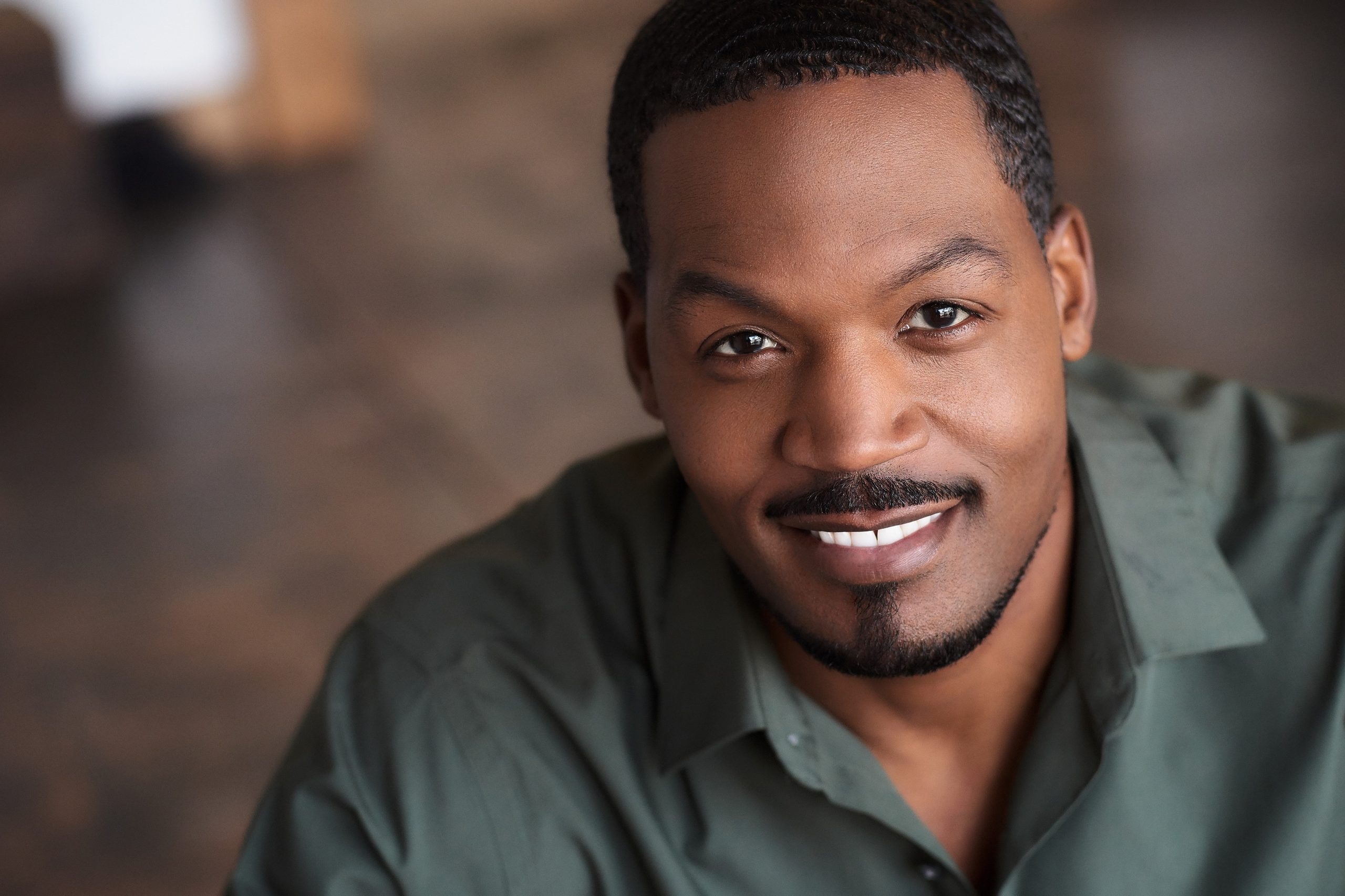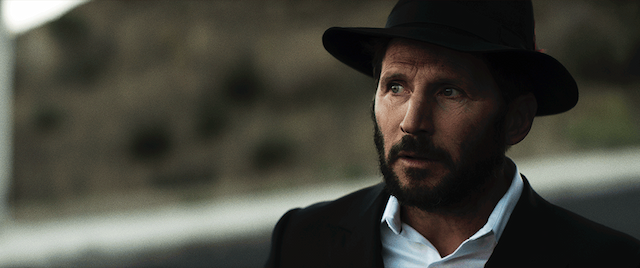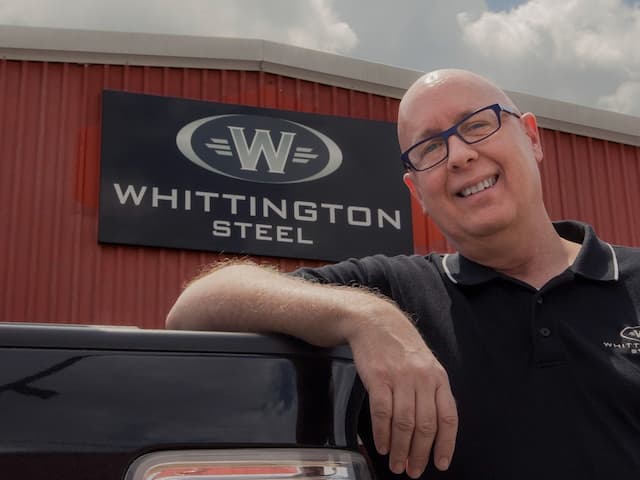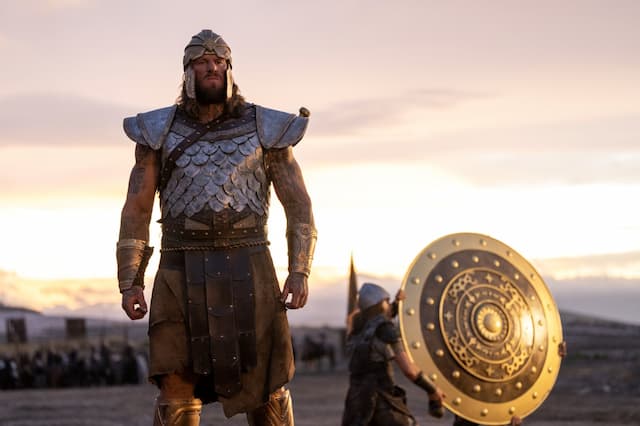'No Vacancy' Star T.C. Stallings Shines Light on Homelessness Crisis

The latest homelessness statistics in the United States of America are staggering. According to PolicyAdvice.net, on any given night, more than half a million Americans spend the night on the streets, in their car, or in a shelter. That represents 0.2 percent of the entire U.S. population.
When you put it in those terms, this figure of less than one percent might seem trivial. But to take a drive through just about any town in America, you will see the dramatic effects of homelessness. It is only exacerbated in large metropolitan areas where new tent villages pop up on nearly a daily basis.
This national crisis serves as the backdrop of a new Fathom movie event releasing in more than 750 theaters for one night only next week (May 9th). No Vacancy is the true story of a jaded newspaper reporter (Sean Young, No Way Out, Ace Ventura: Pet Detective) who has been demoted to covering rural news. She is slowly transformed as she befriends a homeless drug addict (T.C. Stallings, War Room) who is a part of a Florida church’s struggle to purchase a motel for homeless families. The movie also stars Dean Cain (Lois & Clark, God’s Not Dead).
Find a Local Theater Near You to See No Vacancy:
I recently sat down with Stallings to discuss the challenging nature of his role in No Vacancy, what drives homelessness in America, and a few simple measures someone can take to ease the epic nature of this national crisis.
This movie is based on the true story of a cynical reporter demoted to a rural news bureau who slowly regains her journalistic footing after befriending a homeless, recovering drug addict. You play the role of Cecil Johnson, the aforementioned homeless, former drug addict, trying to turn his life around. What attracted you to the role?
It was exactly that. It was the fact that this person experienced a complete 180 in his life in so many ways from who he was. He’s on drugs, he’s depressed. He doesn’t have hope for life and doesn’t want to live anymore. He is heavily into drugs and literally is trying harder to exit this life than to make something out of himself. It would take a complete transformation for people to not be able to see Cecil Johnson because of where he has been. And then, so many people know him in real life and it’s a true story. I had no choice, but to be a hundred percent authentic to it. That’s the challenge for me. I have never had a role like this, so it was like a magnet for me to take this role.
You mentioned that you’ve never had a role like this. Did you do anything differently in preparing for this role that you may not have done for other movies, like War Room or Courageous?
Absolutely. There’s about 75% of what I had to do for this film that I’ve never had to do before. The closest thing that I have ever done that is similar to this is when I played Travis Fox in My Brother’s Keeper. That was because I had never been a soldier. So, I had to study what that really looks like because these are real things. Other than that, it just came down to good acting and my regular discipline. But for the first time, I’m playing a real person. So now you’ve got to get with people that knew him and learn his mannerisms. Also, it’s the first time I ever had to have an accent, a Southern drawl that you hear throughout the whole film. I had to practice holding the speech patterns and not lean back into how T.C. talks. I also completely changed my look.
I’ve never had to do that. There’s been take off the beard or take off the mustache, but to completely look different that’s something new for me. I had to get in the ‘mud of life’ in terms of not being groomed well, being dirty, not being well spoken and all the different things of being affected by drugs. There are drug addicts who know what that looks like. They are homeless people that know what this feels like. You have to study all of that, so when people see it, they’re not going to think he’s overactive or he’s underplanted. You want to be authentic to it. So, all of that research and studying had to go into it to make sure I was authentic to the role.
I understand that you really immersed yourself into your character. With that in mind, as we all know, homelessness in America is a huge problem. Every time I visit a major city, homelessness is everywhere I look. From your perspective, what do you think drives homelessness and addicts to stay in the destructive cycle of life that they’re in?
I don’t think a lot of times that people choose to be homeless. I think what happens is maybe other choices that they’ve made lead them into that situation. And then they don’t have the tools to necessarily know how to get out. They may not have the support to get out. I knew people when I was growing up, they were in a family where they were without their mother, or grew up without a father. Or maybe they grew up without both of them. You don’t choose your parents. You just kind of grow up in a situation where if people don’t take care of their lives, and they lose the house, they’re homeless with these little children in the mix. There are so many factors that put a person in these situations, which is why you should never judge a person in terms of how they got there.
Maybe they got exposed to drugs that way. It’s one of those things where regardless of the multitude of ways you end up there, if you haven’t gotten the tools to get out of it, that’s going to make it tough. And then if people aren’t willing to show love and listen to you, and come and help you, then you are also missing that fact. Everyone in those situations will need some sort of help. I think what’s driving homelessness now is there is not necessarily a concerted effort to just really hone in on it. There needs to be a united concerted effort to say, this can end and we are all going to participate. That’s probably a deeper conversation for another time, but I can for sure say that if we all came together and decided that there would be no more of it in terms of helping what’s already there, I think we would for sure succeed. But I don’t know if that’s at the top of everyone’s agenda right now because not everybody is directly affected by it. In fact, my character deals with people wanting the Cecil Johnson’s of the world to move out of the way. You’re killing property value, you’re stopping people from coming to my store. That’s what we have to deal with.
Kingstone Studio chief Art Ayris, has been quoted as saying that this was the appropriate time to release a movie like No Vacancy, because it’s not only a true story, but it’s about how a community came together in a miraculous way. It was a miracle that happened. What are your thoughts on that?
Not to over-dramatize everything, but we need hope more than we’ve ever needed it before. I would just say there is never a bad time to celebrate hope because every day there’s somebody sitting somewhere hopeless. This movie is a story about hope. There’s never not a good time to discuss something that happened like this. It was just like you said, it was like a straight up miracle. And there are a lot of people who need to see that whatever situation you’re in, here’s a real life situation. And when God did some tremendous things, people saw a miracle.
Look, the pandemic is still sticking around. We’ve got wars, we have all these different things going on. But homelessness has never left. There’s racism too. And then we have this film in the midst of all of this, and it’s a true story that encourages you to have hope, to be actionary, to love, and listen to people. We are in a period of time right now where a lot of people could use that. So, this movie may be the kick in the pants to encourage you to actually go and do something. This movie is not a fantasy, it’s a true story. And hopefully it will encourage people to listen. It’s going to make you feel something. And then, you act on what you felt in your real life. So, hopefully that’s what happens.
Final question for you. What are some valuable life lessons that people can learn from No Vacancy?
That no matter what someone is going through, and I know my character covers a lot of areas with homelessness, drug addiction, hunger, and depression, a person listened to this person’s problem. And then they acted on that problem. First of all, they had to show love to even care. So, it starts by listening to the person’s problem. And then, they listen to God in terms of what to do about that problem. That to me is the summation of what it means to love God and to love people. And so, that’s what I hope people take away. The life lesson is no matter what someone is going through, you choose to love them and then listen to them. Don’t judge them. Don’t chastise. Listen to what they’re going through and then take it to God and pray about what you should do about what you heard. You need to love, listen, and act. When you do this, some amazing things can happen. If I had to say what No Vacancy is in a sentence, that’s what I would say. Somebody got loved. They got listened to. And then that person listened to the Lord about what to do. And if you’re a person on the other end of that, like my character Cecil, pray that someone would just love you enough to listen to your issue and then be willing to pray about how to help you. God can do amazing things through a scenario like that.
Find a Local Theater Near You to See No Vacancy:
Watch a Trailer for No Vacancy:









